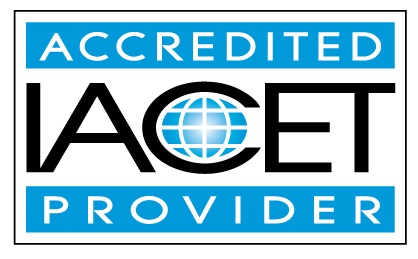CRT Access Message Personally Delivered to 240 Members of Congress
East Amherst, New York
Over 160 Complex Rehab Technology (CRT) stakeholders from across the country came together at the 2018 National CRT Leadership and Advocacy Conference on April 25 and 26 in Arlington, Virginia. The theme of the conference was protecting access to CRT for people with disabilities who depend on it to manage their medical needs, minimize their healthcare costs, and maximize their independence.
 This annual conference is a partnership of the National Coalition for Assistive and Rehab Technology (NCART) and the National Registry of Rehabilitation Technology Suppliers (NRRTS). The event brings CRT stakeholders together in one place for high value education, networking, and advocacy focused on taking the CRT access message directly to Members of Congress in Washington, D.C.
This annual conference is a partnership of the National Coalition for Assistive and Rehab Technology (NCART) and the National Registry of Rehabilitation Technology Suppliers (NRRTS). The event brings CRT stakeholders together in one place for high value education, networking, and advocacy focused on taking the CRT access message directly to Members of Congress in Washington, D.C.
The 160 attendees represented all sectors of the CRT community. That included providers, manufacturers, consumers and consumer organizations, clinicians and clinical organizations, family and caregivers, researchers, and other advocates from a total of 36 states. 30 of the attendees were CRT wheelchair users who came to personally share their stories.
 April 26 was Capitol Hill Day and produced visits to 240 Congressional offices. Initial reports are positive and indicate strong Congressional awareness and support for the pending CRT legislation. Advocates will now move to follow up activities during the upcoming weeks. For CRT stakeholders unable to attend the conference, they can email and call their Members of Congress using the links and information available at www.protectmymobility.org.
April 26 was Capitol Hill Day and produced visits to 240 Congressional offices. Initial reports are positive and indicate strong Congressional awareness and support for the pending CRT legislation. Advocates will now move to follow up activities during the upcoming weeks. For CRT stakeholders unable to attend the conference, they can email and call their Members of Congress using the links and information available at www.protectmymobility.org.
Don Clayback, NCART Executive Director, said “Thanks to everyone who came to Washington to personally visit their Members of Congress, especially the consumer and clinicians who made the trip. We continue to increase the level of CRT awareness and support in Congress and these Washington activities play a major role. Nothing sends a stronger message then a personal visit to their D.C. offices and with good follow up we’ll secure additional cosponsors and get the needed CRT legislation passed.”
Weesie Walker, NRRTS Executive Director, stated “It’s gratifying to see a large group of the CRT community coming together in one place to move the mission of protecting CRT access forward. We want this National CRT Leadership and Advocacy Conference to continue to serve as a catalyst for more effective information sharing, collaboration, and advocacy. We appreciate our sponsors for making it possible to bring CRT consumers to the Hill as they have the most powerful message.”
The first day of the conference included a variety of panel presentations covering “The CRT Consumer’s Perspective”, “Health Care Policy Trends and Politics”, “Challenges Facing CRT Suppliers”, and “Industry Issues and Initiatives”. The panelists shared their experiences and expertise on a wide range of topics that provided timely information and updates in these important areas.
The final session of the day was “Capitol Hill Preparation” which opened with comments from Lenny Larsen, a California CRT advocate who runs a Hollywood production studio while simultaneously coaching champion springboard and platform divers. Lenny was injured in a training accident in 2013 and uses a CRT standing power wheelchair that he operates with a sip-and-puff drive control system and a ventilator. Attendees left the orientation both informed and motivated.

Additional information regarding Lenny Larsen can be found at http://www.latimes.com/local/california/la‐me‐divingcoach‐20160829‐snap‐story.html. In this interview he states “Nothing stops me from moving forward. I may be rolling forward rather than walking forward. But I’m still moving forward.”
The second day of the conference, Capitol Hill Day, centered around taking the critical CRT access message directly to Members of Congress. Delegations of CRT stakeholders met with over 240 offices to educate Members on the benefits of CRT and the barriers to access. The CRT legislative message was twofold.

First and foremost, there is an urgent need to cosponsor and pass the “Protecting Beneficiary Access to Complex Rehab Technology” (S. 486 and H.R. 3730). This legislation will stop Medicare from inappropriately applying Competitive Bidding Program payments to CRT manual wheelchair accessories (critical components). These cuts must be stopped to protect access for the people with significant disabilities who depend on these specialized manual wheelchair systems. The bills currently have 21 cosponsors in the Senate and 87 cosponsors in the House.
The second request was to cosponsor and pass the “Ensuring Access to Quality Complex Rehab Technology Act” (H.R. 750). This bill will create a Separate Benefit Category for CRT within the Medicare program and make needed changes to improve coverage policies and safeguards. This bill currently has 99 cosponsors.
Passage of the CRT legislation is supported by over 50 national consumer, disability, and medical professional organizations.
The National Coalition for Assistive and Rehab Technology (NCART) works to ensure individuals with significant disabilities and medical conditions have adequate access to individually configured Complex Rehab Technology (CRT) products and supporting services that address their medical needs and maximize their function and independence. Visit www.ncart.us
The National Registry of Rehabilitation Technology Suppliers (NRRTS) is a professional association supporting individuals who provide Complex Rehab Technology (CRT) wheelchairs and seated positioning systems for people of all ages and diagnoses who have postural or mobility deficits.
Contacts:
NCART – Don Clayback, Executive Director, dclayback@ncart.us
NRRTS – Weesie Walker, Executive Director,wwalker@nrrts.org

